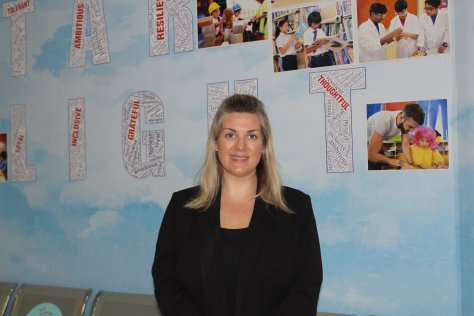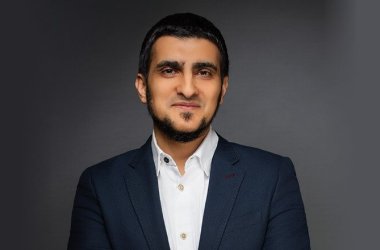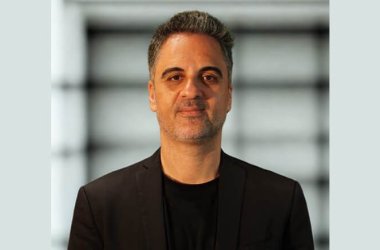
However, in developed nations, we often take education for granted and lose sight of the fact that for many children in underdeveloped countries, education is not as easily accessible, therefore does not provide the pathway required for greater opportunities.
Star International School Al Twar, based in Dubai, is playing its part in terms of addressing and bridging the gap that exists in the global education system through a unique partnership with an education facility in Zanzibar.
CNME spoke to Claire Gilmore, the person responsible for creating the initiative and spearheading its future direction to learn more about the project.
“The school is called Creative Education Foundation Zanzibar, and it has adopted a Steiner teaching model approach to how it dispenses its education. For those not familiar with a Steiner school, its pedagogy strives to develop pupil’s intellectual, artistic and practical skills, which looks holistically at the child, as opposed to just focusing on academics, so it really is a very different way to deliver the curriculum”, said Gilmore.
The school was specifically designed to provide education to both those who have been orphaned, and children who hail from disadvantaged areas, but as Gilmore points out the school faces huge challenges in terms of how it finances its operations as it does not meet the criteria required for government funding.
“The school has 73 students enrolled from Grade 1 to Grade 7, and 87% of these students are either orphans, or from disadvantaged families. Unfortunately, the school receives no government funding, so they need to fundraise to be able to provide these services. The school also does not qualify for international aid because they are operating on such a small scale. Incredibly, it has taken them 9 years to get internet access to the school. They finally got internet broadband this year, which ultimately has allowed us to extend our partnership with them”, said Gilmore.
Gilmore highlighted how the partnership initially began to help Creative Education Foundation Zanzibar reach their fundraising targets, and disclosed how FS students at Star International School, embarked upon an enterprise project where they designed lanterns out of tin cans and then sold them to parents to raise money for the school, but she stressed how this year her objective was to expand the partnership, especially considering that the school now had the broadband capabilities which allowed them to broaden the partnership.
“I really wanted to expand it this year and make it more of a partnership, rather than just being a vessel to help them fundraise. I met with the principal in Zanzibar to share my ideas and thoughts and I outlined how I wanted to base our partnership through a collaboration model. I wanted it to be collaborative, because I believe we can both learn from each other, and I was reluctant for it to be just us sharing our ideas, as I want it to be a two-way street. We want to find out and determine what their culture and beliefs are, what their school day looks like, the resources at their disposal and the facilities that they use. We started it off as a pilot, as we did not want to go to too large too quick. We have started off with Year 2, Year 6 and the secondary school council students, and they will be having the most contact with the school through live Zooms”, said Gilmore.
Gilmore added that the advent of technology at the Creative Education Foundation has fostered an environment which will allow Star International School to conduct LIVE lessons in the future.
“Some of the older students have created step-by-step ‘how to’ videos that teachers can reference and incorporate into their own teaching – and I’m really excited along with the other teachers to be able to conduct live phonics lessons to help support their English. The principal of the school informed me that this is an area in which they lack – and is not a particular strong point for their staff, so they are very keen for us to deliver these lessons. We believe that through these lessons we will equip the teachers will the right skills and methods to carry out these lessons on their own in the future”, said Gilmore.
Despite the fact Gilmore has pursued an expansion of the program, she is cognisant of the fact that they still need to play their role in terms of helping the school meet its fundraising objectives to maintain the hugely important mission Creative Education Foundation are playing in terms of empowering children in Zanzibar.
“We plan to do another enterprise project in which we will create a number of different products that we can then sell at an online auction, in which the families can bid against each other online. We do understand that with no government funding, or any international aid, they need all the financial support and assistance they can get to allow them to continue to do the incredible empowering work that they do each and every day for these children”, said Gilmore.
The education sector like every other major industry across the globe has been impacted and disrupted by the ongoing COVID-19 pandemic that shuddered the world to a halt last year.
However, the UAE has been used as a test case for other nations across the world as to how you can harness the power of technology to create an effective online learning model for students forced to learn remotely.
Gilmore candidly provided her views on remote education and highlighted the negatives and positives that have arisen from the adoption of that model, which was of course forced due to the global health crisis.
“Distance learning was incredibly challenging for everybody last year, but especially for younger students like those in FS and Year 1. Trying to adapt the curriculum is tough, because it is very play-based and collaboration-focused, so it was difficult. We were very lucky that we were already using a lot of online platforms to support the learning, such as seesaw for primary, so the children were not being introduced to anything new as they had an understanding of the technology”, said Gilmore.
Gilmore also praised the adaptions made by Microsoft to enhance their MS Teams application, which has tailored the solution to meet the evolving needs of teachers.
“It allows the children that are still distance learning to be more integrated and can help us to better assess them and track the work they are doing throughout the lesson”, said Gilmore.
Gilmore concluded a brilliant interview by conceding that despite the incredible success of the distance learning provided by Star International School, and other schools in the UAE, she would prefer the traditional method of learning, which of course consists of ALL children being back in the classroom.
“In an ideal world I don’t think I’d like there to be two modes of education! You hear people talk about the 21st century skills, but a huge part of these skills are learnt at school, and they need to be in school to properly engage and interact with their peers. I would be concerned about the impact the restrictions could have on some children long-term, especially the younger children. Online distance learning has worked, and thankfully we had already integrated the technology into our curriculum, so the children were familiar with it, but the sooner we have everybody back in the classroom the better”, said Gilmore.





